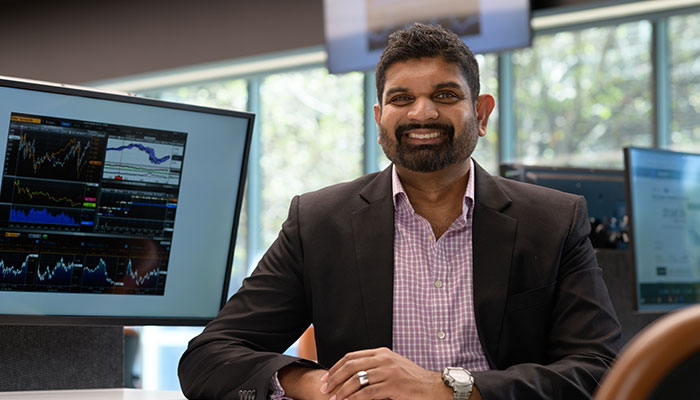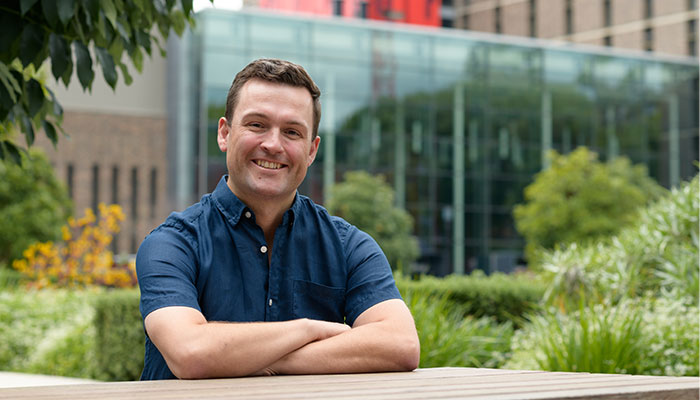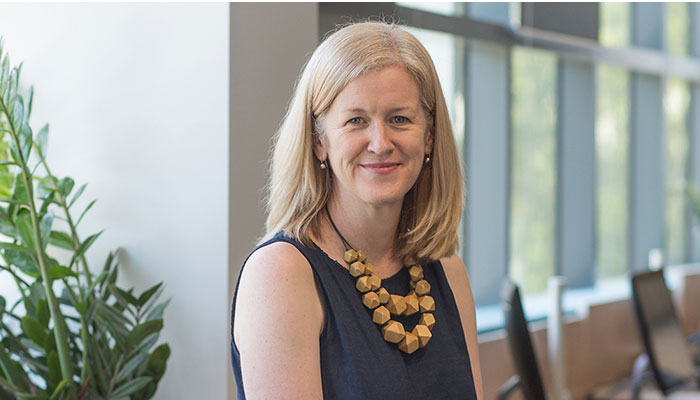
Teacher: Senior Lecturer Dr Prashan Karunaratne (pictured), Course Director, Bachelor of Commerce, teaches the Commerce capstone unit at Macquarie Business School.
Groundwork: Prashan has a PhD in Management – Learning & Teaching (Macquarie University), a Master of Business Administration – Banking (University of London), a Master of Commerce – Actuarial Studies (University of New South Wales), and a Bachelor of Economics – Honours (Macquarie University).
Gold stars: Prashan received, in 2020, the inaugural Australian Business Deans Council Network Award for Innovation and Excellence in Teaching and Learning. He won the 2019 Australian Award for University Teaching – Outstanding Contributions to Student Learning Award. He helped develop, and is an instructor for, the popular Excel Skills for Business courses, which received the Coursera Outstanding Educator Award for Student Transformation in 2018. Prashan has received several Macquarie Business School and University teaching awards over the years.
How his students describe him: Effective communicator, engaging, funny, enthusiastic, creative, clear, a listener.
What Prashan says:
Growing up, I went to schools in Sri Lanka, Saudi Arabia, Fiji and Australia. That might seem like a disruptive education but given that Macquarie students come from a wide variety of backgrounds, I’m pivoting it as a plus! It has informed a more eclectic approach to teaching, especially as I’ve also taught courses in Singapore, India and the UAE.
At school, it was the geography and economics teachers who left the biggest impression. They always tied the curriculum to the bigger picture – our current lives and our future aspirations. Learning with them was more about life lessons than the syllabus and marks.

Disney factor: The differences between Frozen's Princess Elsa and Princess Anna is a teaching point for Dr Karunaratne, who likes to add pictures and music to help information register with his students.
Learning business and economics can seem dry to those who don't have the facility for it. So, again, you work outside the textbook examples. Students might photograph post-boxes or water taps in their city streets as part of a class project, which can lead to a discussion about monopolies like Australia Post and Sydney Water, or the competitive market of the water sold in bottles at the convenience store. So, we end up discussing – not my examples, not the textbook examples, but students’ own examples.
Everyone is a player in the economy. The coffee you buy on the way to work, the lunch you make or buy, your labour in a part-time job, how your HECS debt works – there are so many lenses on economics to discuss just by waking up, getting yourself to uni and then to your work!
Some students are visual, some audio, some musical, some book-driven. As Professor Mark Williams, in the Department of Cognitive Science, has explained to me, information registers in different parts of the brain, and the more parts of the brain that get triggered, the longer lasting the memory is and the more meaningful that memory is in terms of recalling and applying information. So rather than just prose or just numbers, you add pictures, you add music, and it leaves an impression as a metaphor or a parable.
Covid has allowed us to glean extra insights from the experts from all over the world – the UK, China, or South Africa – without the expense and the logistics.
I’m known for incorporating Disney film-clips into my lectures. Frozen, for example, is a wonderful way into a discussion about monopoly markets and competitive markets. Princess Elsa loves to hide in her room behind closed doors. Princess Anna likes to open all the windows and doors. But the one with the power is Elsa, who likes the barriers, and monopolies are all about barriers to entry to retain your market power.
Covid has been very challenging. I have always taught by bouncing off the audience and made good use of the physical space of a lecture theatre/classroom. You can’t do that on Zoom. I’ve implemented new ways of engaging. Breakout rooms obviously help, as does various collaborative software that might involve, for example, collaborative Post-it notes with platforms such as Mural, or a collaborative drawing board with platforms such as Padlet.
The benefit of this Covid world, however, is the rise in overseas guest speakers. Covid has allowed us to glean extra insights from the experts from all over the world – the UK, China, or South Africa – without the expense and the logistics. Now it's just seamless. We’ve changed old mindsets about overseas guest speakers as being in the too hard basket.
I don’t think there’s any secret about how to teach well except to be yourself. Equip yourself and have a growth mindset, with regards to teaching tools and practice. But at the core of it, if you are yourself, students will see you as a person first and a knowledge vessel second.
How would I like my students to view me? As easily excited, empathetic and empowering.
Who is the perfect student? The one who is willing to be always engaged with activities even if things do not make sense at first. Just have the trust that everything will come together, that there's a purpose and a plan behind it – that the “aha” moment will come – #EveryoneSayWow



